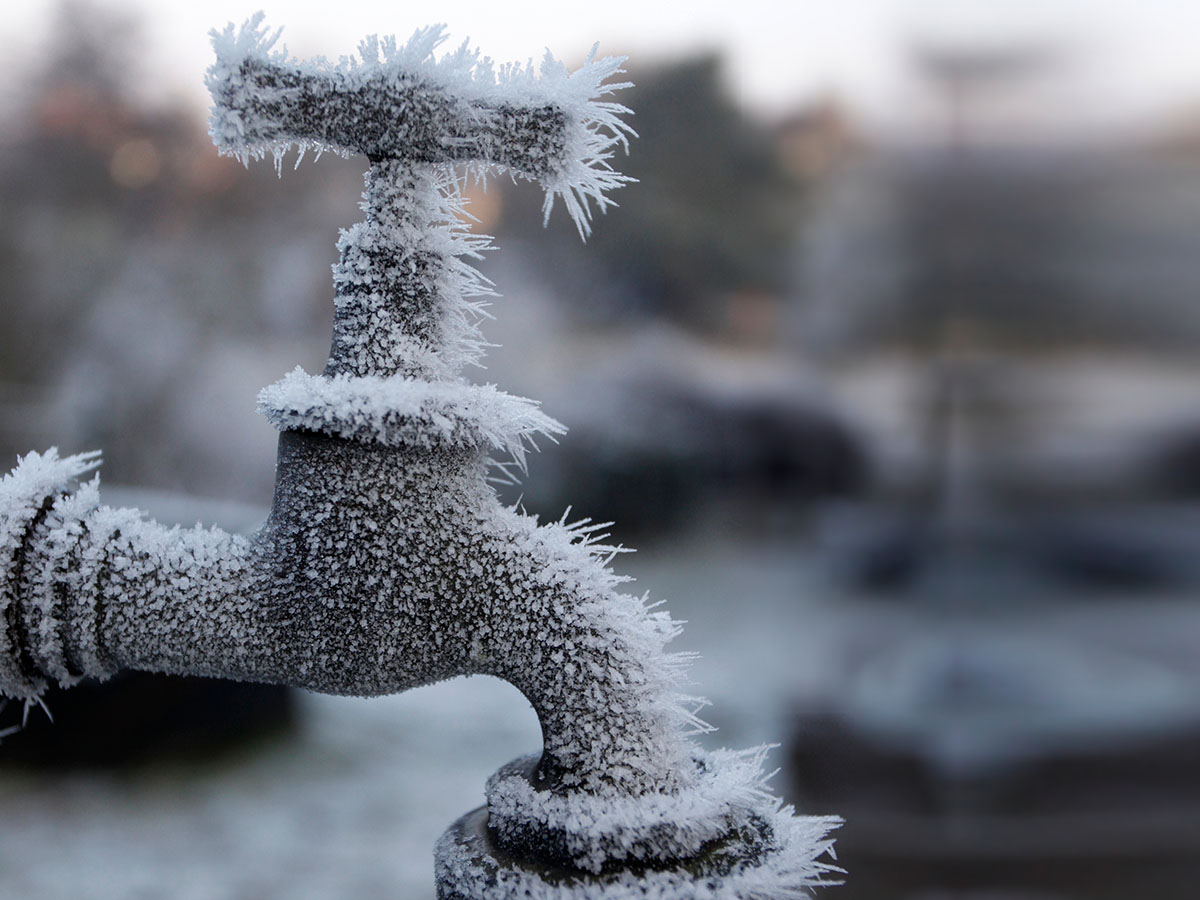Avoiding Frozen Plumbing in Cold Weather: Professional Strategies
Avoiding Frozen Plumbing in Cold Weather: Professional Strategies
Blog Article
Have you been on the lookout for details concerning Helpful Tips to Prevent Frozen Pipes this Winter?

Cold weather can wreak havoc on your plumbing, particularly by freezing pipelines. Below's how to prevent it from occurring and what to do if it does.
Intro
As temperatures decrease, the threat of icy pipelines boosts, possibly bring about expensive repair work and water damages. Understanding just how to prevent frozen pipelines is critical for property owners in cold climates.
Prevention Tips
Shielding at risk pipelines
Wrap pipes in insulation sleeves or utilize warmth tape to shield them from freezing temperatures. Concentrate on pipelines in unheated or exterior areas of the home.
Heating techniques
Keep indoor spaces effectively heated up, particularly locations with pipes. Open cupboard doors to allow warm air to flow around pipelines under sinks.
Exactly how to determine frozen pipelines
Search for reduced water flow from faucets, unusual smells or noises from pipelines, and visible frost on exposed pipelines.
Long-Term Solutions
Architectural modifications
Take into consideration rerouting pipes away from outside wall surfaces or unheated areas. Include added insulation to attic rooms, cellars, and crawl spaces.
Upgrading insulation
Buy top quality insulation for pipelines, attic rooms, and wall surfaces. Proper insulation aids preserve constant temperatures and minimizes the threat of icy pipes.
Securing Exterior Pipes
Yard hose pipes and exterior taps
Separate and drain yard tubes prior to winter. Install frost-proof spigots or cover outdoor faucets with shielded caps.
Recognizing Frozen Pipes
What creates pipelines to ice up?
Pipelines freeze when subjected to temperatures below 32 ° F (0 ° C) for prolonged durations. As water inside the pipelines ices up, it increases, taxing the pipe wall surfaces and possibly causing them to rupture.
Threats and damages
Frozen pipes can result in supply of water disruptions, residential property damage, and expensive repair work. Burst pipelines can flood homes and trigger extensive structural damage.
Signs of Frozen Piping
Recognizing frozen pipelines early can stop them from breaking.
What to Do If Your Pipelines Freeze
Immediate actions to take
If you presume icy pipelines, keep faucets open up to eliminate stress as the ice thaws. Use a hairdryer or towels taken in hot water to thaw pipelines gradually.
Final thought
Protecting against icy pipes requires proactive steps and fast feedbacks. By understanding the causes, indications, and safety nets, property owners can safeguard their pipes throughout cold weather.
Helpful Tips to Prevent Frozen Pipes this Winter
UNDERSTANDING THE BASICS: WHY PIPES FREEZE AND WHY IT’S A PROBLEM
Water freezing inside pipes is common during the winter months, but understanding why pipes freeze, and the potential problems it can cause is crucial in preventing such incidents. This section will delve into the basics of why pipes freeze and the associated problems that may arise.
THE SCIENCE BEHIND FROZEN PIPES
When water reaches freezing temperatures, it undergoes a physical transformation and solidifies into ice. This expansion of water as it freezes is the primary reason pipes can burst. As the water inside the pipe freezes, it expands, creating immense pressure on the walls. If the pressure becomes too great, the pipe can crack or rupture, leading to leaks and water damage.
FACTORS THAT CONTRIBUTE TO PIPE FREEZING
Low Temperatures: Extremely cold weather, especially below freezing, increases the risk of pipes freezing. Uninsulated or Poorly Insulated Pipes: Pipes located in unheated areas, such as basements, crawl spaces, or attics, are more prone to freezing. Insufficient insulation or lack of insulation altogether exacerbates the problem. Exterior Wall Exposure: Pipes running along exterior walls are susceptible to freezing as they encounter colder temperatures outside. Lack of Heating or Temperature Regulation: Inadequate heating or inconsistent temperature control in your home can contribute to frozen pipes. PROBLEMS CAUSED BY FROZEN PIPES
- Pipe Bursting: As mentioned earlier, the expansion of water as it freezes can cause pipes to burst, resulting in significant water damage.
- Water Damage: When pipes burst, it can lead to flooding and water damage to your property, including walls, ceilings, flooring, and personal belongings.
- Structural Damage: Prolonged exposure to water from burst pipes can compromise the structural integrity of your home, leading to costly repairs.
- Mold and Mildew Growth: Excess moisture from water damage can create a favorable environment for mold and mildew growth, posing health risks to occupants.
- Disrupted Water Supply: Frozen pipes can also result in a complete or partial loss of water supply until the issue is resolved.
WHY CERTAIN PIPES ARE MORE PRONE TO FREEZING
- Location: Pipes located in unheated or poorly insulated areas, such as basements, crawl spaces, attics, or exterior walls, are at higher risk of freezing.
- Exterior Pipes: Outdoor pipes, such as those used for irrigation or exposed plumbing, are particularly vulnerable to freezing as they are directly exposed to the elements.
- Supply Lines: Pipes that carry water from the main water supply into your home, including the main water line, are critical to protect as freezing in these lines can affect your entire plumbing system.
- Underground Pipes: Pipes buried underground, such as those connected to sprinkler systems or outdoor faucets, can be susceptible to freezing if not properly insulated.
https://busybusy.com/blog/helpful-tips-to-prevent-frozen-pipes-this-winter/

Do you appreciate more info about How to prepare your home plumbing for winter weather? Give a comment below. We would be pleased to hear your opinion about this review. We hope to see you back again in the future. Remember to take the time to distribute this blog posting if you liked it. I appreciate your readership.
This Page Report this page